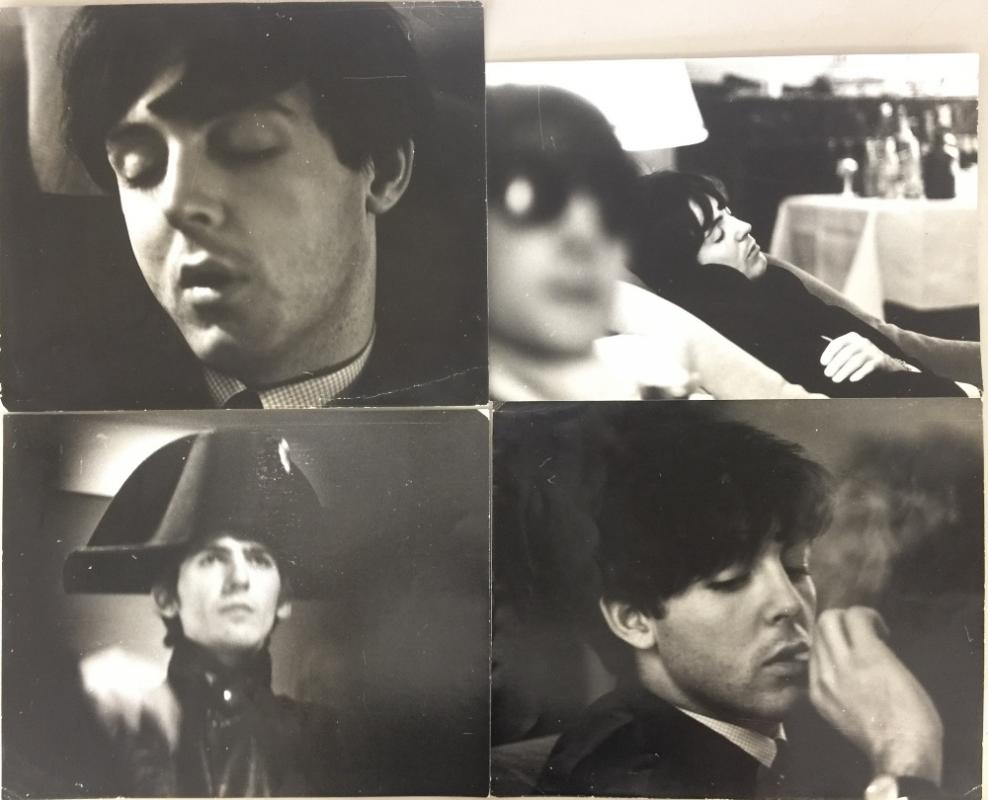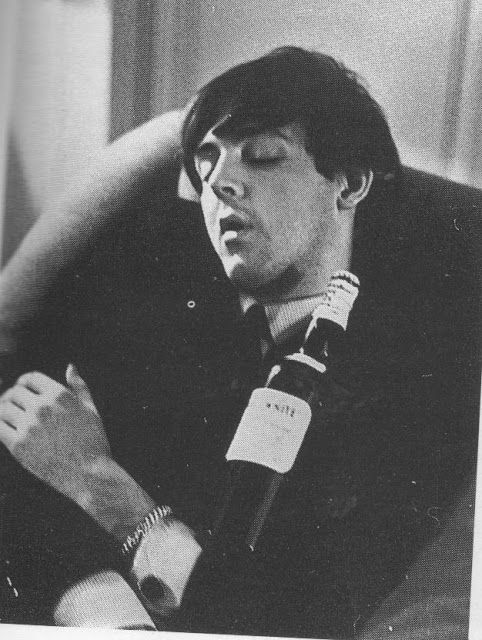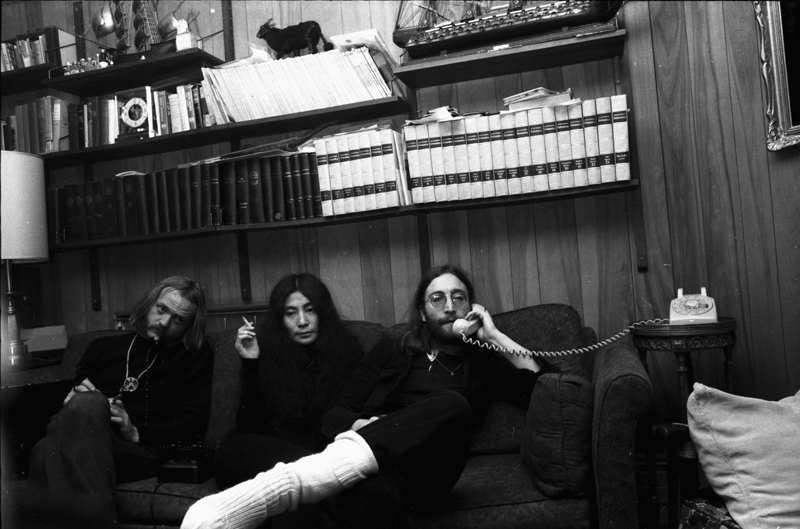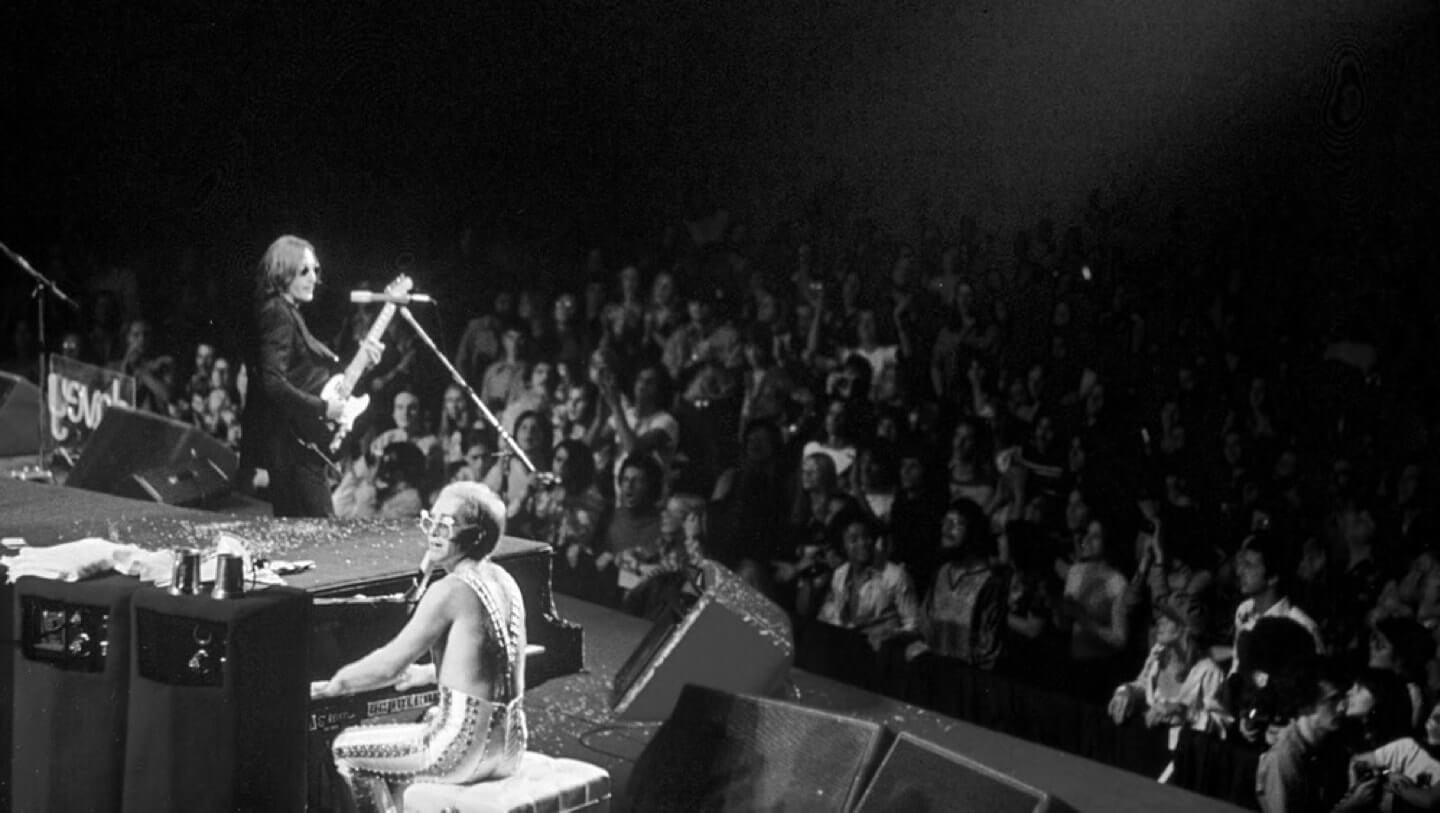Q: OK. But how did you come to hook up with John and Yoko in Dec. 1969?
A: I first made the contact from England by a writer from Rolling Stone named Ritchie Yorke. He said he was in England with John Lennon and Yoko. who were looking for a place to stay, because they didn’t want to do the hotel thing any more. Yorke brought up my name and they called me to ask if it would be OK if they stayed at the house, at that time in Mississauga, not to far from Toronto, where he could still do his business and stuff. So they styed with us and we went on that peace train, to see Prime minister Trudeau. We went to Montreal. We went to Ottawa, and whereever John and Yoko wanted to go. I didn’t know that much about the Beatles at that time because my world was playin’ in bars and that was it. And so it took me two or three years after John and Yoko had left that they were ahead of their time.
Q: What were your first impressions when you met John?
A: Well, I didn’t know too much. I did know that Yoko was super intelligent. She was supposedly be able to speak five or six or seven languages. I know she could call anyone. She put 16 lines in my house and she could pick up and phone the ambassador to Japan, Princess Elizabeth, Peter Sellers. All those people, she just picked up and talked to everyday.
Q: Literally 16 telephone lines?
A: Yeah. they negotiated on a Saturday night, and daylight Sunday morning 16 lines came across the fields into my house. Usually, you have to wait six months for one phone, but this is what happens when you have authority.
Q: At first you saw John as being weak and subserviant to Yoko?
A: Well it was different for me. John was a quiet, good cat. She did all the talkin’. It looked kind of different to me, but I came to understand it as I came to understand John’s background.
Q: Did you have a moment alone with John?
A: Oh yeah. We went out several times, alone but then she got a little hot and started leaving notes. We went outside snowmobiling, and I also had those six-wheel jiggers out there (ATV’s) and John had never played in the snow or anything. Right after that, John ordered a few for his farm in New York. Remember at that time they were doing that together thing and he asked a few times if it was OK to go out and play in the snow and she didn’t say anything and she was kind of hot at him for a day or two.
Q: What about the famous bathtub story?
A: What happened, I guess, is that they went upstairs to draw a bath and laid down, and the bathtub went over. They fell asleep and our new ceilings came in on us. That’s one of many things. There was a fire in my barn. All those little old papers that were between the lithographs that he was signing — thousands of them — and they stacked out there and something set them on fire because it was rice paper or something. there was a wind and it started settin’ everything on fire. John came runnin’ out with a pail for kids to put that fire out.The papers were blowin’ out in the fields. And to top it off, the phone bill was never paid.
Q: In Albert Goldman’s book, “The Lives Of John Lennon,” he said that you had “suffered every sort of insult, from seeing (your) children pouring over the muff-diving imagery of Lennon’s erotic lithographs…” Any truth to this charge?
A: No, no. They didn’t see any of that stuff until later, when they were old enough to see it. John had scratched out nude pictures and stuff of Yoko, and everything, and we still have a bunch of that stuff.
Q: Goldman also said that the limo carrying John and Yoko “crashed” through your gate when they first arrive, and that John Brower, who had brought John to Canada for the “Live Peace in Toronto” gig, three months earlier, became enranged and punched out a photographer. True?
A: No. And that was Heddy Andrews (in the scuffle). John Brower had hired security to keep people from comin’ over the wall. One of the photographers climbed over the wall and was sneakin’ in and it ended up in a scuffle.
Q: Talk about the “peace train.”
A: It was planned all along. You’ve got to remember that it was going to be the peace festival. At that time, it was still goin’ strong. I was told Trudeau was going to supply the security for the concert with the military and have a big one. At first it was going to be the greatest thing that ever happened and then some people started sayin’ weird things to the press and something happened.
Q: What are some of your best memories of your time with John?
A: When he got out of the limo from the airport and I met them at the house, the first thing he said was “I’m going to give you forty days to get back home.” He knew all of my records. He knew most of them better than I did.
Q: Did you jam?
A: Oh yeah, we did a lot of that piddlin’ around.
Q: Anybody record it?
A: Yeah. One of them English cats did. I don’t know if it ever got out or not. That was kind of a wild time. Everybody was runnin’ around playin’ ski-doos and, writers and cooks . That was microbiotic times. You know it was exciting.
Q: What were your personal feelings of John and Yoko.
A: Well John, he was just nice. Yoko was who I didn’t understand because she was super intelligent. She was above a bar-act, which I was. At that particular time, I thought I was doin’ them a favour. I didn’t know that anybody was that powerful. I thought the Beatles were an English group that got lucky. I didn’t know a lot about their music. I thought Yoko’s was (silly). To this day, I have never heard a Beatle album. For 10 billion dollars, I couldn’t name one song on “Abbey Road.” I have never in my life picked up a Beatle album, and listened to it. Never. But John was so powerful. I liked him. He wasn’t one of those hotshots, you know, all those other heavy metallers, you know how they act. John was a gentleman. Quiet, humble and polite. He wasn’t out of control.
Q: Your best rememberance of Yoko?
A: Well, she knew so many people. She called so many people and was in charge of so many things and told the number one man in the world of the Beatles what to do. I couldn’t understand that.
Q: Did you ever ask John about that?
A: No. I figured that was his business. If he wanted her to talk to him like that…but what I couldn’t understand that he didn’t have about four or five of the most beautiful women in the world with him, because he could have.




